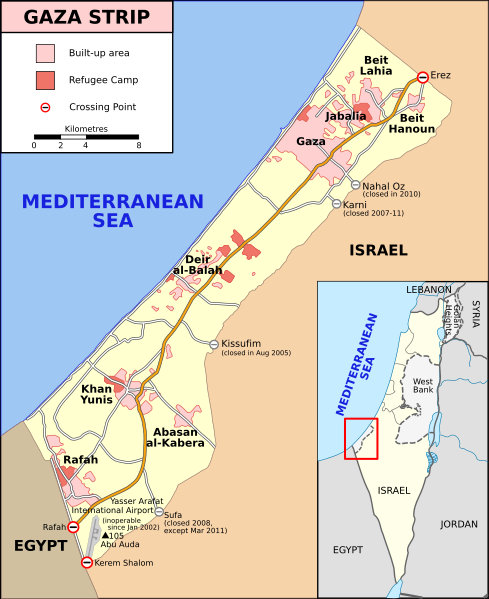The seizure of Gaza's vital Rafah border crossing by Israeli troops has raised concerns about a potential full-scale invasion of the southern city, as cease-fire talks between Israel and Hamas remain on a knife's edge. The White House described the Israeli operation as limited in scope, but the move has blurred the lines of what the Biden administration considers an acceptable incursion into Rafah.
The Israeli foray overnight came after hours of diplomatic whiplash in the now 7-month-old Israel-Hamas war. Hamas said Monday it accepted a cease-fire proposal that Israel insisted fell short of its core demands. The high-stakes diplomatic moves and military brinkmanship have left a glimmer of hope for a deal to bring at least a pause in the war, which has killed more than 34,700 Palestinians, according to local health officials, and has devastated the Gaza Strip.
By capturing the Rafah crossing, Israel gained full control over the entry and exit of people and goods for the first time since its withdrawal from Gaza in 2005. Israeli Prime Minister Benjamin Netanyahu called the capture an "important step" toward dismantling Hamas' military and governing capabilities, while Defense Minister Yoav Gallant said Israel would "deepen" the Rafah operation if talks on a hostage deal failed.
The United Nations warned of a potential collapse in the flow of aid to Palestinians due to the closure of Rafah and the other main crossing into Gaza, Kerem Shalom, at a time when officials say northern Gaza is experiencing "full-blown famine." The looming operation also threatens to widen a rift between Israel and its main backer, the United States, which has expressed concern over the fate of around 1.3 million Palestinians crammed into Rafah.
White House National Security Council spokesman John Kirby said the operation along the Gaza-Egypt border in eastern Rafah was not the full-on invasion that President Joe Biden has repeatedly warned against on humanitarian grounds. "This is an operation of limited scope, scale and duration," Kirby told reporters, noting that the U.S. would be "watching this one very, very closely."
However, the administration's stance on what constitutes an acceptable Rafah invasion appears to be less than clear. Three administration officials said Israel's Monday night campaign into eastern Rafah, which came hours after an evacuation order for 100,000 people, has the United States "concerned." But they stressed that the operation has fallen short of the major ground invasion the White House has warned against.
"This does look like the prelude of a major military operation," State Department spokesperson Matthew Miller told reporters Tuesday, shortly after Kirby's remarks. "We have not yet seen that operation commenced." Asked about that comment, he clarified: "We don't know if it's a prelude or not."
The closure of the Rafah and Kerem Shalom crossings has disrupted the fragile aid operation in Gaza. "The closure of both the Rafah and Kerem Shalom crossings is especially damaging to an already dire humanitarian situation," United Nations Secretary General António Guterres said Tuesday. Bob Kitchen, the International Rescue Committee's vice president for emergencies, warned that "over a million civilians are now in imminent danger and aid flow through the Rafah crossing has halted with no aid trucks entering since May 5."
Israeli strikes and bombardment across Rafah overnight killed at least 23 Palestinians, including at least six women and five children, according to hospital records. The fighting forced the evacuation of the Abu Youssef al-Najjar Hospital, one of the main medical centers receiving people wounded in airstrikes on Rafah in recent weeks.
CIA Director Bill Burns is heading back to Cairo for negotiations that may be inching toward a deal. On Monday, Hamas said it greenlit a cease-fire deal proposed by Egypt and Qatar, but it wasn't the pact Israel and the United States supported. Hours later, Israel launched its operation into Rafah, potentially complicating talks and damaging broader efforts at normalizing relations between Israel and Saudi Arabia.
As the humanitarian situation in Gaza continues to deteriorate, the Biden administration faces the challenge of enforcing its red lines on Israel's military actions while working to broker a cease-fire deal that addresses both sides' demands. The fate of the estimated 100 hostages and remains of 30 others still held by Hamas remains a key sticking point in the negotiations, with the militant group insisting on an end to the war and Israel's withdrawal from Gaza before releasing them.






